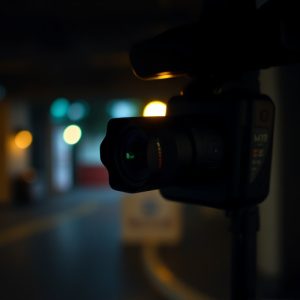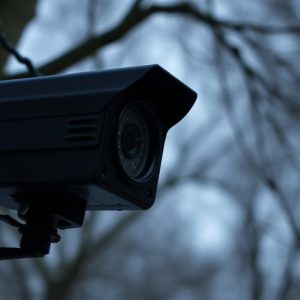Battery-Powered Covert Nanny Cameras: Security or Invasion of Privacy?
Battery-powered covert nanny cameras, seamlessly integrated into everyday objects like books or plan…….
Battery-powered covert nanny cameras, seamlessly integrated into everyday objects like books or plants, have revolutionized home security with discreet monitoring solutions. Offering 24/7 surveillance via smartphone apps and cloud storage, these DIY devices provide peace of mind but raise concerns about privacy invasion and ethical use of footage. Balancing security benefits against potential legal and ethical issues requires nuanced understanding of consent, data protection, and evolving legal frameworks governing this technology.
In the ever-evolving landscape of home security, miniature surveillance devices hidden within everyday objects have emerged as a game-changer. This comprehensive guide explores the rise of battery-powered covert nanny cameras, delving into their sophisticated design and extensive applications. We balance the benefits against critical privacy concerns, dissecting legal and ethical considerations that make this technology both intriguing and controversial. Prepare to uncover the multifaceted world of hidden cameras disguised as ordinary home objects.
- Understanding Battery-Powered Covert Cameras: A Comprehensive Overview
- The Rise of Miniature Surveillance in Everyday Objects
- Home Security and Privacy Concerns: Balancing Act
- Uncovering the Benefits of Nanny Cameras in Disguised Forms
- Legal and Ethical Considerations: Navigating a Complex Landscape
Understanding Battery-Powered Covert Cameras: A Comprehensive Overview
Battery-powered covert nanny cameras have transformed home security, offering a discrete and flexible monitoring solution. These compact devices are designed to blend seamlessly into everyday objects like books, plants, or even light bulbs, making them ideal for long-term observation without raising suspicion. The ‘do-it-yourself’ nature of these cameras appeals to homeowners seeking personal safety and peace of mind.
Comprised of a miniature camera, a built-in battery, and often wireless connectivity, their operation is simple yet effective. They can be easily placed in strategic locations inside or outside the home, capturing video and audio without any visible external components. With some models offering motion detection and night vision capabilities, they provide 24/7 surveillance, ensuring that valuable data is recorded even under low-light conditions or during moments of activity.
The Rise of Miniature Surveillance in Everyday Objects
In recent years, the advancement in technology has led to a discrete and growing trend—miniature surveillance devices integrated into everyday home objects. These tiny yet powerful tools, often referred to as Battery Powered Covert Nanny Cameras, offer unprecedented levels of monitoring and peace of mind for homeowners. Their miniature size allows them to be seamlessly incorporated into various items like picture frames, plant pots, or even light bulbs, making them virtually invisible to potential intruders.
This innovative approach to security has revolutionized home surveillance, enabling users to capture videos and images remotely via smartphone apps. With real-time alerts and cloud storage capabilities, homeowners can now keep an eye on their properties from anywhere at any time. The rise of miniature surveillance devices reflects a changing dynamic in personal security, where convenience and discretion go hand in hand, enhancing the safety and comfort of modern living spaces.
Home Security and Privacy Concerns: Balancing Act
The integration of miniature surveillance devices, like battery-powered covert nanny cameras, into everyday home objects raises significant security and privacy concerns. While these tiny cameras offer enhanced peace of mind for parents, employers, or homeowners, they also pose a delicate balancing act between safety and personal privacy. With their discreet nature, these devices can be easily hidden within seemingly innocuous items, making it challenging to know when or where surveillance is occurring.
This technology blurs the lines between public and private spaces, as even the most intimate settings can become subject to constant observation. The potential for invasion of privacy is heightened by the ease of accessing and sharing recorded footage online. As such, it’s crucial for users to thoroughly consider the ethical implications and legal boundaries surrounding the use of battery-powered covert nanny cameras to ensure a harmonious balance between security and respect for personal privacy.
Uncovering the Benefits of Nanny Cameras in Disguised Forms
In today’s digital era, battery-powered covert nanny cameras offer a discrete yet powerful tool for peace of mind. These miniature surveillance devices seamlessly integrate into everyday home objects like picture frames, plants, or even light bulbs, providing an unassuming means of monitoring sensitive areas. The benefits are clear: parents can keep an eye on their children’s activities while away, homeowners can deter potential intruders, and businesses can ensure the security of valuable assets without attracting unwanted attention.
With their compact size and easy installation, battery-powered covert nanny cameras provide a practical solution for those seeking enhanced security without compromising aesthetics. These devices offer remote access via smartphone apps, allowing users to monitor live feeds, record videos, and capture still images from anywhere, at any time. This level of accessibility empowers individuals to stay connected to their surroundings, ensuring safety and providing invaluable peace of mind.
Legal and Ethical Considerations: Navigating a Complex Landscape
The integration of miniature surveillance devices, such as battery-powered covert nanny cameras, into everyday home objects raises a series of complex legal and ethical questions. On one hand, these tiny cameras offer enhanced security and peace of mind for parents, caregivers, or homeowners, allowing them to remotely monitor activities within their properties. However, the very nature of being ‘covert’ implies an invasion of privacy, which is a fundamental right protected by law in many jurisdictions. Balancing the benefits of covert surveillance against potential violations of privacy is a delicate task, requiring a nuanced understanding of data protection, consent, and legal frameworks.
In many countries, the use of such devices is subject to strict regulations, especially when it comes to capturing images or audio of individuals without their knowledge. Legal experts emphasize the importance of obtaining explicit consent from all parties involved, particularly in domestic settings where expectations of privacy are typically higher. Moreover, the ethical implications extend beyond personal privacy; they also touch on issues of data security and the potential misuse of recorded footage. As technology advances, it becomes increasingly critical to establish clear guidelines and legal frameworks that govern the use of battery-powered covert nanny cameras to ensure a harmonious relationship between innovation and individual liberties.
The integration of battery-powered covert nanny cameras into everyday home objects presents both significant benefits for enhanced security and privacy concerns that require careful consideration. As these miniature surveillance devices become more sophisticated, it’s crucial for homeowners to understand the legal implications and ethical boundaries surrounding their use. Striking a balance between peace of mind and individual privacy will be essential as this technology continues to evolve and find its place in modern homes.


